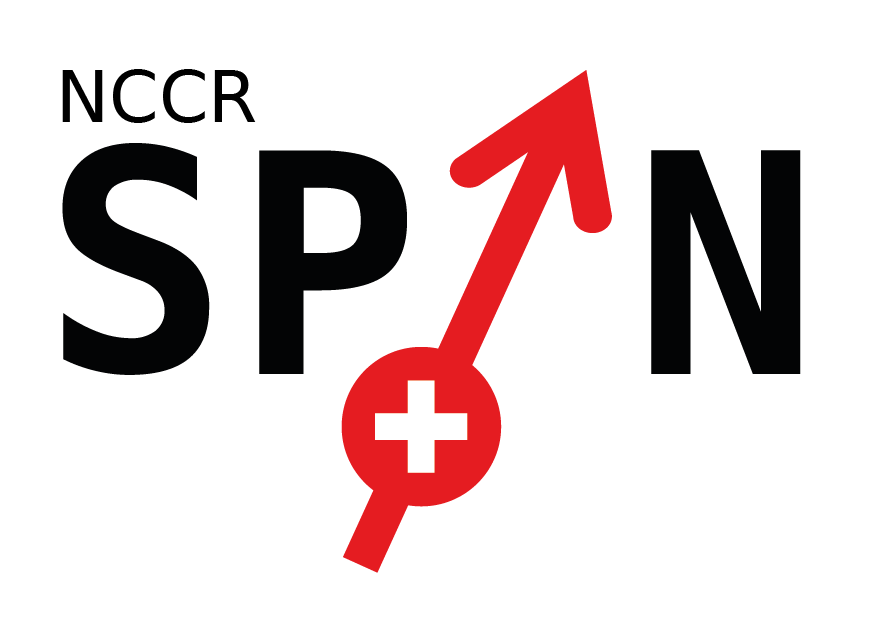Don’t be scared to turn your life around at any time and completely change your field of study, education or work – you are never too old to follow the path you think is best for your future and mental health.
Interview with Rhea Hoyer, INSPIRE Potential SPIN Master’s fellow 2021
Who are you?
My Name is Rhea Hoyer, I’ve been living in Basel for ten years, received my bachelor’s degree in physics from the university of Basel, am currently enrolled for my master’s degree here and am finishing my thesis in the field of condensed matter theory. I took mostly solid state courses in my master’s, as they already fascinated me in my bachelor’s program. Before my studies in physics, I received a bachelor’s degree in law from the same university but decided to switch studies after my first master semester in this field.
Have you always been interested in science? Was there a certain moment that you remember when you just knew: This is it!?
I always liked to learn new things. For example, in my childhood, I took apart some VHS cassettes to find out how they work; and I read a lot of books. In school, I was not focused on a specific field, I enjoyed learning a bit of everything. It was hard for me to know which direction my studies should take. I don’t think there was this one moment where I felt I should choose science, it came to me gradually until I couldn’t shake off the feeling anymore.
How did you come to study physics at university? What do you like about the field?
I started studying law, as I found the application of principles and rules on an individual case-by-case basis interesting but realised that the rules are changing constantly, plus I didn’t want to become a lawyer. Besides, I really missed solving mathematical problems, so I wondered which field of study would be right for me. After a semester of thinking, I concluded that physics was one of the most fundamental sciences, if not the most fundamental. Together with philosophy, it has always asked for the why and how the real world works on a fundamental level. In the end, this made it possible for me to transition to a field of study where there are also principles and rules to apply to individual problems, but those rules are not changing as fast as they do in law.
What I like most about physics is that it combines abstract mathematics with real world problems to study, to try to understand and solve and that there are so many different things to learn and immerse oneself into.
What is the topic of your master’s project?
My project examines topological hybridisations between particle-number sectors in quantum magnets. I study how magnons, which are the quanta of collective excitations in magnets, hybridise with so-called two-magnon bound states, which themselves are states of two tightly bound magnons. Importantly, I have shown that the hybridisation results in spectral gaps that support topologically protected edge modes, which chirally revolve around the sample’s circumference, not unlike edge states in the quantum Hall effect. They are of mixed multipolar character, meaning they carry a mix of a spin dipole and spin quadrupole, characters they inherit from their single-particle and two-particle weight, respectively. This physics is inherently “quantum” because it vanishes in the classical limit. As such, it differs from the previous research on topological magnons and opens a door to fascinating new physics. With the edge excitations being chargeless quasiparticles that are immune to backscattering at defects due to their chirality, they may find use in future low-energy spin-based technologies that do not suffer from Joule heating and manufacturing imperfections.
In simpler words, I conduct fundamental research on the topic of topological excitations of chargeless particles in magnetic quantum spin systems, which could enable a future technology where the transport of information occurs without heat losses, thereby lowering the energy consumption, which is vital in times of an energy crisis.
Do women face specific challenges in the sciences?
In my personal experience in university, I wasn’t treated differently by the university, postdocs or professors than my male peers, which may speak for an advancement in this topic, although I cannot say what the future holds.
The world of scientific research is not made for people wanting to start a family, people who would be the main carers of the household and the people in it; long working hours, conferences abroad as well as complex and mentally demanding topics can be draining. In our generation, still, mostly women are expected to take over that role.
Any advice for young girls interested in the field?
If you decide to study science, try to study together with your peers and, more importantly, support each other in stressful times. It is much more fun when you can share your passion for science but can also share the hard times.
Don’t be scared to turn your life around at any time in your life, and completely change your field of study, education or work – you are never too old to follow the path you think is best for your future and mental health. Also, try new things, even if you think it’s not entirely for you. It might be right after all.
What are your plans for the future?
I plan on starting my PhD in theoretical physics this year and will presumably move abroad for this. As a general life goal, I want to never stop learning more interesting things and accumulating knowledge.

